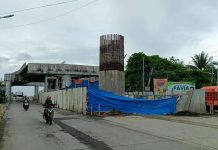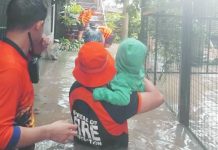
ILOILO City – Nearly 900 boardinghouses here were discovered to be operating without the required business permits following intensified inspections by the city government ahead of the start of college classes, raising alarm over student safety and regulatory compliance.
As of June 30, the Boarding House Commission (BHC), in coordination with the Business Permits and Licensing Division (BPLD), Bureau of Fire Protection (BFP), zoning office, and other agencies of the city government, had inspected 1,953 out of the 2,679 registered accommodation establishments across the city. Of these, 898 were found operating without valid business permits.
“These are serious findings,” said city government spokesperson Joy Fantilaga-Gorzal. “Some of these boarding houses are operating illegally, while others are situated in areas not zoned for commercial use, including socialized housing sites.”
Nine establishments have already been ordered closed due to multiple violations, including failure to comply with zoning regulations, the National Building Code, and the Fire Code of the Philippines.
Fantilaga-Gorzal explained that some business permit applications were denied outright because the buildings were located in socialized housing areas — government-distributed properties that are not legally allowed to be rented out.
“Once an establishment is found to be operating without a permit, the owners are given seven days to comply,” she said. “If after that period they have neither secured a permit nor submitted a pending application, our inspection team recommends their closure.”
The city government vowed to continue inspection efforts in the coming weeks to ensure all accommodations meet legal and safety standards.
“Our goal is to ensure that all boarding houses are safe, legal, and compliant so our students, and their parents, can have peace of mind,” Fantilaga-Gorzal added.
Despite the violations, she assured that Iloilo City has adequate housing capacity for incoming students. Citing Boarding House Commission Chair Teddy Tingson, she noted that occupancy levels remain manageable, with areas such as Villa Arevalo still having many vacancies.
“That tells us that, as of now, supply is still adequate,” she said.
Boardinghouse owners were reminded to secure all necessary permits before accepting tenants, especially fire safety certifications. Meanwhile, parents and students were urged to be vigilant.
“Make sure the boarding house has a valid and updated business permit and a fire safety certificate,” Fantilaga-Gorzal stressed. “After all, a boarding house becomes a student’s second home. We want to make sure that home is safe, secure, and compliant with the law.”/PN





